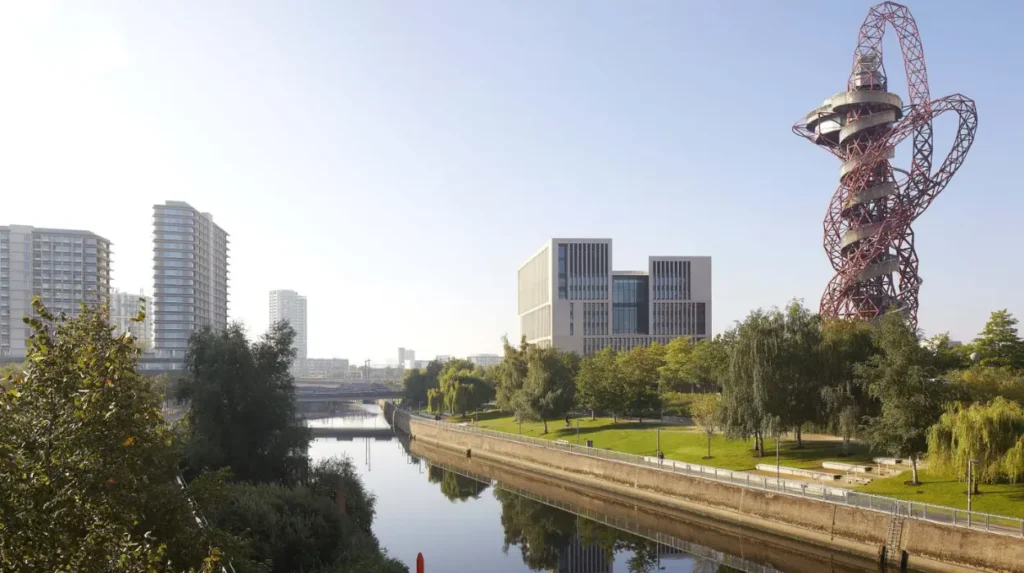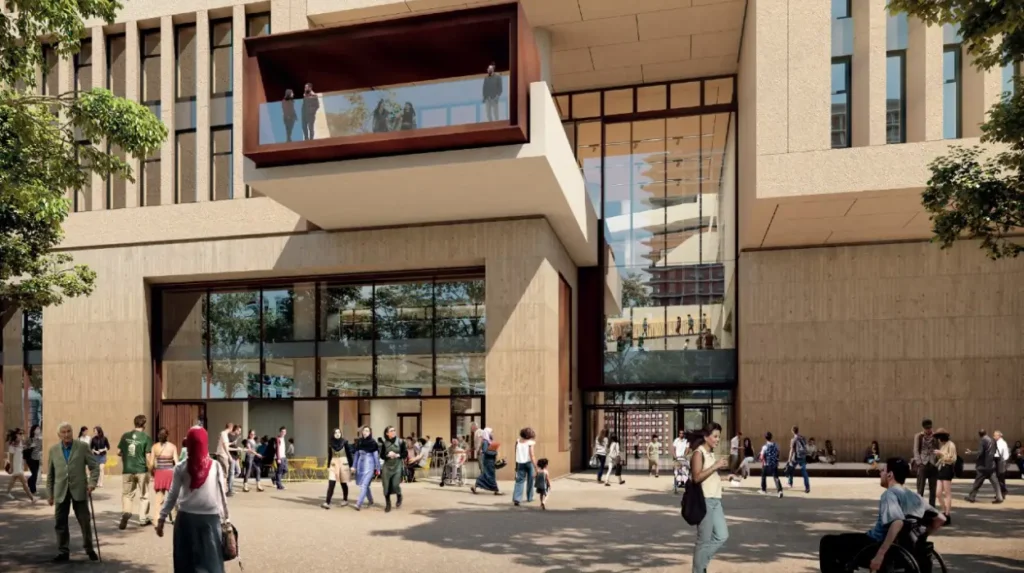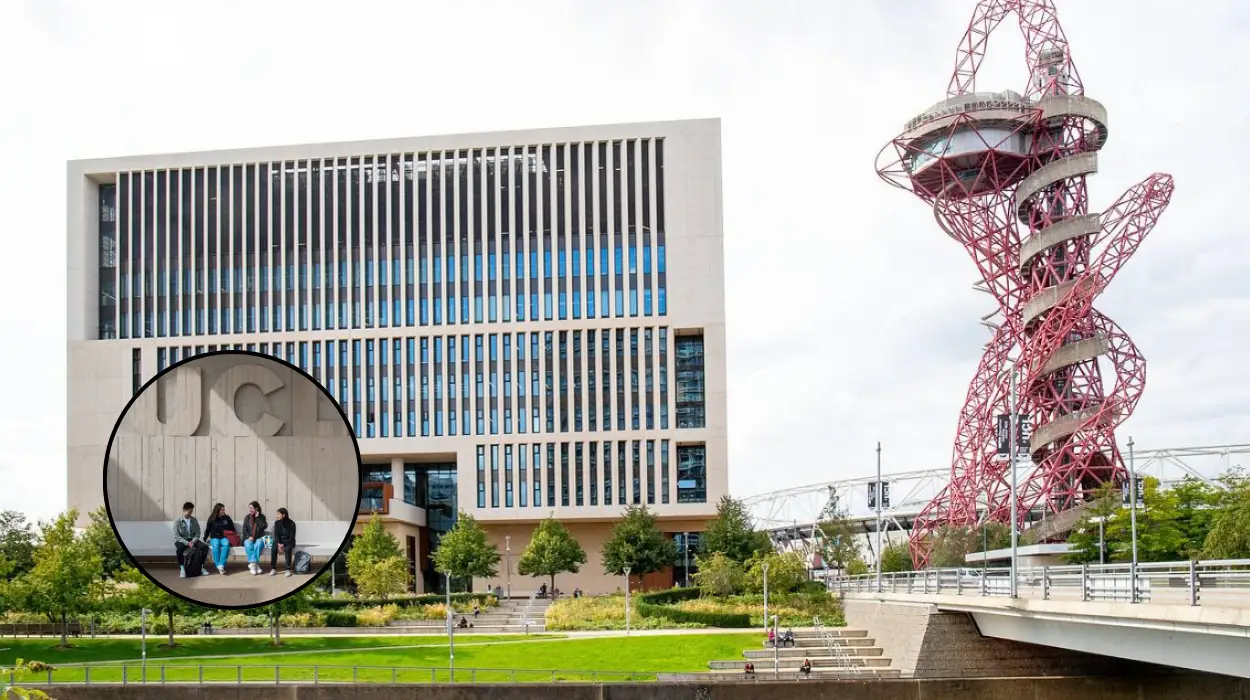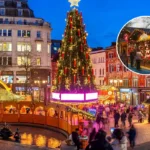UCL East London represents a groundbreaking expansion of University College London into the heart of East London at Queen Elizabeth Olympic Park in Stratford, blending world-class education, cutting-edge research, and community regeneration. This state-of-the-art campus, fully operational since 2023, supports thousands of students and staff while fostering cross-disciplinary innovation in fields like engineering, arts, and sustainability. For East London residents, UCL East offers accessible opportunities to engage with global academia right on their doorstep, driving local prosperity and cultural growth.
The Origins and Development of UCL East
UCL announced plans for UCL East in 2011 as part of a £500 million investment strategy, aiming to create an 11-acre campus adjacent to the Olympic Park to repurpose the 2012 legacy site into an education and innovation hub. Revised in 2014, the project secured outline planning permission in 2018 from the London Legacy Development Corporation, with UK government funding of £100 million contributing to the £1.1 billion East Bank redevelopment. Construction began in 2019, marked by a groundbreaking ceremony led by Mayor Sadiq Khan, overcoming supply chain delays to open One Pool Street in late 2022 and flagship Marshgate in 2023.
The campus masterplan envisions Phase 1 completion with 50,000 square meters of space for 4,000 students and 660 staff, expanding to 180,000 square meters by the 2030s with four additional buildings. Positioned on either side of the Waterworks River south of the ArcelorMittal Orbit, UCL East integrates seamlessly into Stratford’s landscape, promoting pedestrian links via Thornton Bridge and public access for community events. This strategic location in Newham borough leverages East London’s transport connectivity, including Stratford Station, to attract diverse talent while addressing local deprivation through inclusive design.

State-of-the-Art Facilities at UCL East
Marshgate, the campus’s centerpiece costing £250 million, spans eight floors with a central atrium connecting three vertical neighborhoods for collaborative research and teaching across UCL’s faculties. It houses advanced labs like a variable luminance artificial sky dome, human thermal chamber, Global Disability Innovation Hub, and Precision Fabrication Workshop, enabling breakthroughs in experiments, arts, society, and technology (EAST). Student amenities include a library, refectory, cafe, lecture theatres, professional kitchens, and pottery studios, all designed with fluid zones for academic and social interaction.
One Pool Street complements this with three floors of research space, a lecture theatre doubling as a 160-seat cinema, and two towers accommodating over 500 students. Both buildings prioritize public access, featuring exhibition spaces, community hubs, and events programs that invite East Londoners to workshops, performances, and lectures. Sustainability features like energy-efficient designs and green spaces align with UCL’s net-zero goals, making the campus a model for eco-conscious urban education.
Academic Programs and Research Excellence
UCL East hosts innovative undergraduate and postgraduate degrees tailored to future industries, including BA in Media, Art and Technology, and Creative Arts and Humanities; BSc in Information and Society; and MSc programs like Anthropology and Professional Practice, Audio Storytelling, and Conservation of Contemporary Art. Engineering and built environment offerings feature MArch in Cinematic and Videogame Architecture, MSc in Connected Environments and Digital Engineering Management, and MBA in Major Infrastructure Delivery. These programs emphasize experiential learning, with cross-faculty integration at Marshgate drawing from eight UCL faculties.
Research thrives in specialized centers like the Institute of Making, Advanced Propulsion Lab, Manufacturing Futures Lab, Experiential Learning Hub, Global Business School for Health, Institute of Finance and Technology, Robotics and Autonomous Systems, and Culture Lab. UCL’s platforms support interdisciplinary work in biomolecular analysis, imaging, prototyping, AI, urbanism, ecology, and assistive technology, open to industry partners for real-world impact. The campus’s focus on prosperity studies, including the London Prosperity Index and East London longitudinal research, measures regeneration effects on local households, informing policies for equitable growth.
Student Life and Accommodation in East London
On-campus living at One Pool Street provides modern en-suite and studio options for over 500 students, with communal study areas, gyms, cinemas, and high-speed Wi-Fi enhancing daily life. Proximity to Stratford’s vibrant scene—markets, theatres, and parks—offers East London authenticity, from street food at Queen Elizabeth Olympic Park to nightlife in nearby Hackney Wick. UCL East events, open days, and exhibitions create a lively atmosphere, blending academic rigor with cultural immersion for a diverse student body from 150+ countries.
Support services ensure accessibility, with 24/7 security, disability provisions, and community partnerships addressing local needs. Off-campus, East London options like urbanest in King’s Cross or local private halls suit budgets from £650 weekly, connecting students to Bloomsbury’s main UCL site via efficient Tube and DLR links. This setup fosters independence while rooting students in Stratford’s regenerating community, boosting social mobility.
Economic Impact and Community Regeneration
UCL East anchors East London’s transformation, creating jobs through 267 spin-outs and 3,000 FTE roles, many staying local to stimulate Newham’s economy. Partnerships with businesses and NHS amplify knowledge exchange, with spin-outs leading in life sciences and net-zero tech, expecting £2.1 billion inflows. The campus reinforces the 2012 Olympics legacy, enhancing social capital via justice, education, and cultural initiatives in higher-deprivation areas.
Community engagement includes public labs, prosperity indices prioritizing local voices, and collaborations like the Institute for Global Prosperity’s 10-year East London study tracking regeneration benefits across 4,000 households. By 2034, full build-out will support 11,169 students and 2,337 staff, attracting investment and upskilling residents in AI, robotics, and sustainable urbanism. UCL East positions Stratford as a global innovation node, benefiting East End families through accessible education and enterprise.

Sustainability and Future Vision
UCL East embeds sustainability, from low-carbon buildings to research on climate-resilient infrastructure and UN-aligned goals. Initiatives like the Blue Green Corridor and net-zero spin-outs tackle environmental challenges, with labs pioneering green manufacturing and ecology. Public spaces promote biodiversity, aligning with UCL’s environmental responsibility across platforms.
Phase 2, starting 2030, adds Pool Street East and Marshgate 2-4, scaling to 40% of Bloomsbury’s size with residences for 1,800 students and commercial research hubs. This evolution cements UCL East as East London’s powerhouse for disruptive thinking, solving planetary issues through local-global collaboration. For Stratford locals, it promises enduring opportunities in a thriving, inclusive hub.


